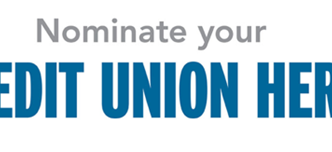Five elements of a fully disclosed overdraft service that help members make informed financial decisions
By: Mark Roe, Executive Vice President of National Sales
It’s been more than a year since the coronavirus pandemic disrupted our businesses and our lives. And while there are encouraging signs of improvement in the economy, unemployment numbers continue to fluctuate.
And while some Americans are feeling more encouraged about their finances than they did last year—according to a recent Pew Research Center survey—many remain worried about meeting some of their basic needs. Just over a quarter of respondents (27%) said they are concerned about paying their bills and healthcare costs, and about one-in-five worry about paying their rent or mortgage (19%). In addition, about half of the respondents (49%) said their family’s financial situation is about the same as it was a year ago, three-in-10 said it has improved and 21% responded it is now worse than a year ago.
In all likelihood, these numbers represent the make-up of your member profiles. Some feel confident in their financial situation. Others may struggle from time to time, experiencing a shortfall in their checking account before payday arrives. And there are some that may be more severely impacted by an unforeseen reduction in work hours or loss of employment. The one thing all members have in common is the need to have easy-to-understand options should any unexpected expenses or error cause their share account to be overdrawn.
Transparency leads to better service experiences and stronger relationships
For many consumers, the difficulty in navigating uncertain financial situations is compounded by a lack of awareness or understanding of the services their financial institution provides. As lobbies return to normal hours of operation and members continue to take advantage of increased digital channels to complete their transactions, you have an opportunity to build long-term relationships. Make the most of every opportunity you have to communicate with your members to strengthen their product knowledge and increase their confidence in the services you provide.
Following are five areas to review to make sure your credit union is giving members the information they need to determine how your overdraft service option meets their financial security needs, while protecting you from compliance and legal risk.
- Service awareness – Do your members know that an overdraft program is a service you offer to cover short-term liquidity needs—just like a line of credit or transfer from a share account?
- Account holder agreements – Do your agreements explain how your overdraft program works, how much it costs, how to use it responsibly or what can cause the privilege to be lost?
- Disclosures – Do your disclosures explain how and when overdraft and NSF fees are charged on transactions involving debit card purchases and resubmitted transactions?
- Preauthorization holds – Do your members understand how debit card preauthorization holds can impact their balance and their transaction activity?
- Available balance – If you assess overdraft/NSF fees based on available balance rather than actual (ledger) balance, does your account agreement describe the balance calculation method, as well as how subsequent transactions can impact the available balance resulting in overdraft/NSF fees?
Service delivery channels may change, but maintaining trust requires always doing the right thing
Since the pandemic began, 43% of respondents to an EY Future Consumer Index survey have changed the way they bank. However, only 16% indicated that the way they bank will change over the longer term because of COVID. Key factors that will impact respondents’ choice of banking preferences going forward include transparent practices and a desire to access services from an institution that behaves ethically.
Clear communication remains one of the most important aspects of maintaining a consumer-friendly, compliant overdraft solution. It gives members a reliable option for maintaining financial security when the unexpected happens. If they need it, they know it’s there and how to use it responsibly.
With the guidance of expert consultants who provide ongoing program evaluation and improvement advice, a responsible overdraft program—that provides options and peace of mind—can be a catalyst for long-term member relationships, compliance certainty and a source of growth.
ABOUT JMFA
JMFA is one of the most trusted names in the industry, focused on communication, transparency and improving client outcomes with a 100% compliant overdraft service and 100% contingency-based vendor contract negotiations. JMFA can help you deliver measurable results with proven solutions. To learn more, please contact your local representative or call us at (800) 809-2307.
# # #






